Ready, Set, Baby: The Essential House Preparations for Your New Arrival
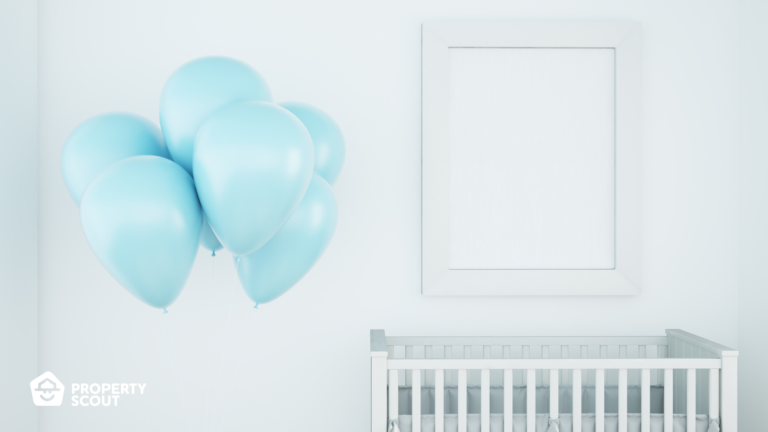
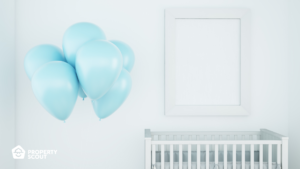
Congratulations, soon-to-be parents! As your due date approaches, it's natural to feel a mix of excitement and nervousness. Welcoming a new member into your family is an incredible experience, but it can also be overwhelming, especially when it comes to preparing your home for your little one's arrival. That's why we're here to help you get ready with our essential house preparations checklist. From creating a safe and cozy nursery to organizing your kitchen and living spaces, we've got you covered. So, let's dive in and get your home ready for your bundle of joy!
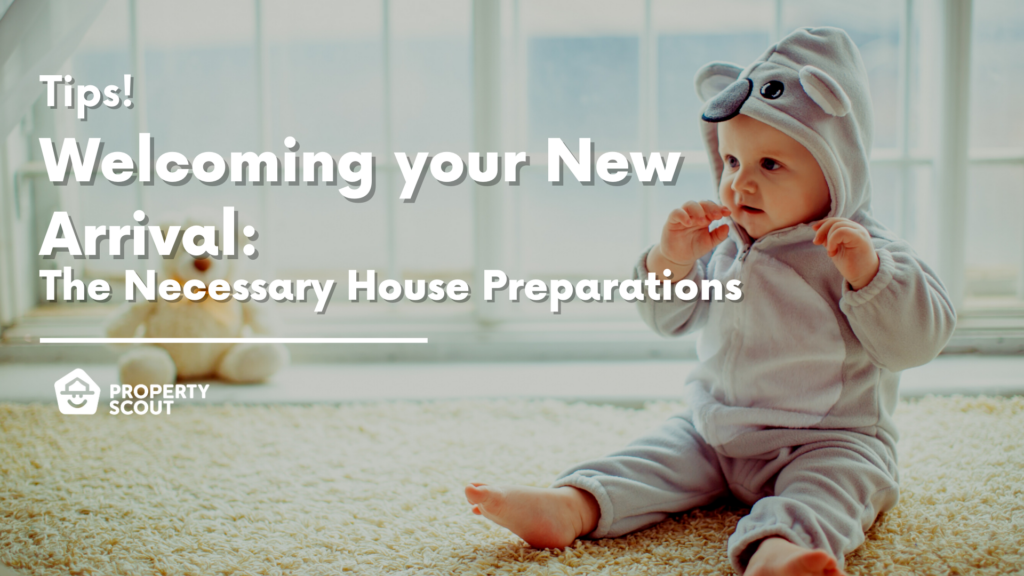
Introduction to Infancy
The "baby" stage, also known as infancy, is the critical period from birth up to two years old. During this time, babies are like sponges, absorbing and learning various behaviors from their surroundings. They have the potential to grow and develop in many ways - physically, mentally, socially, and emotionally. However, they are still fragile and cannot walk with confidence yet, which means they require a great deal of attention and care. As such, parents and caregivers need to be extra vigilant and mindful of many things to ensure a safe and nurturing environment for their little ones.
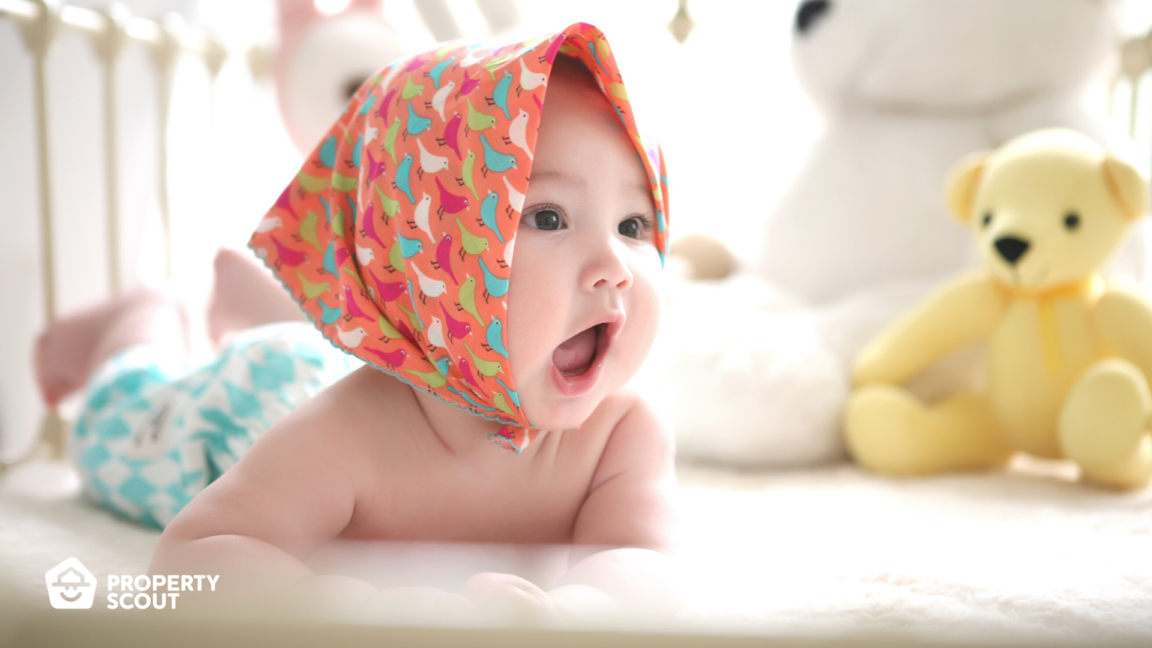
During this stage, children have a natural curiosity to learn and discover new things in their environment. They are drawn to positive attitudes and behaviors, and often mirror the actions and mannerisms of those around them. From their earliest smiles, waving hands, and tentative steps, to engaging in conversation and other milestones, children develop their abilities by emulating the behavior of others. These imitations serve as a means of communication, and help them to navigate their physical development, from crawling to walking and beyond.
The Essentials
Rooms
- Spaciousness
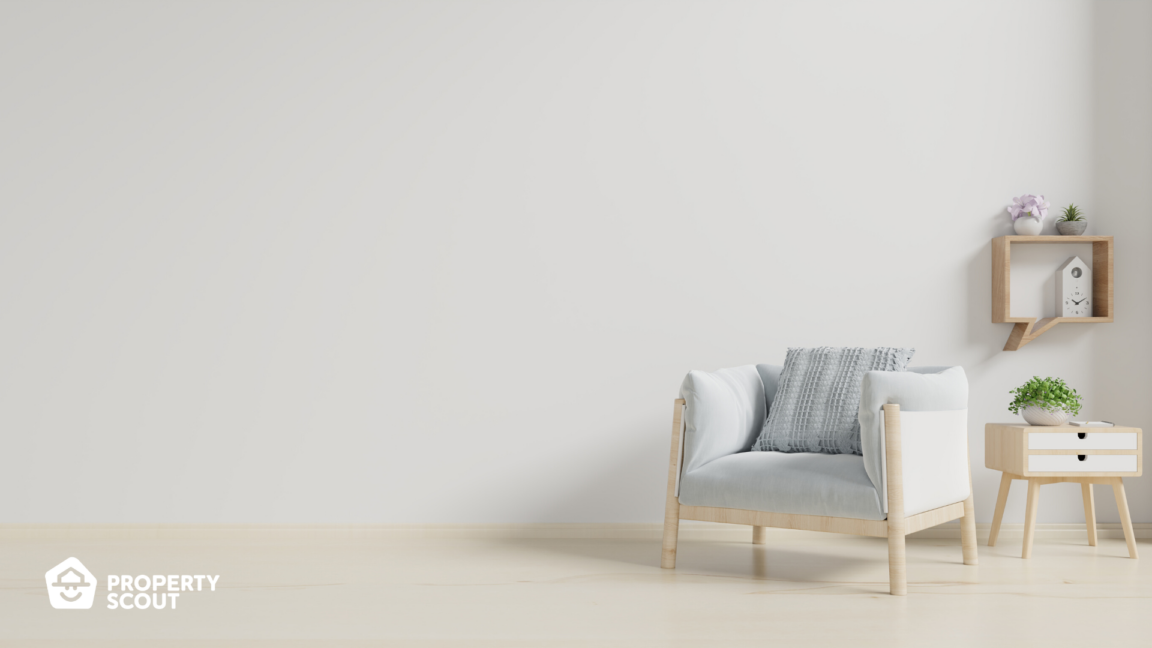
A wide and open room is essential for a baby's safety and growth. Attention must be given to furniture, electrical outlets, and sharp edges. Having ample space encourages crawling, walking, and reaching important developmental milestones. Moreover, it also provides parents with a comfortable area to change their baby's diaper and store essential items.
- Proper Ventilation

Providing a well-ventilated and well-lit room for your baby is crucial as their internal organs are not yet fully developed. Poor ventilation can expose them to harmful bacteria and diseases, which can be detrimental to their health. Therefore, ensuring that your baby's room has good ventilation and natural light is important.
By having windows that allow natural light and fresh air to circulate, you can keep your baby's room bright and airy throughout the day. This not only promotes a healthy environment but also helps prevent the accumulation of germs and bacteria. So, make sure to prioritize ventilation and lighting when setting up your baby's room.
- Noise-free
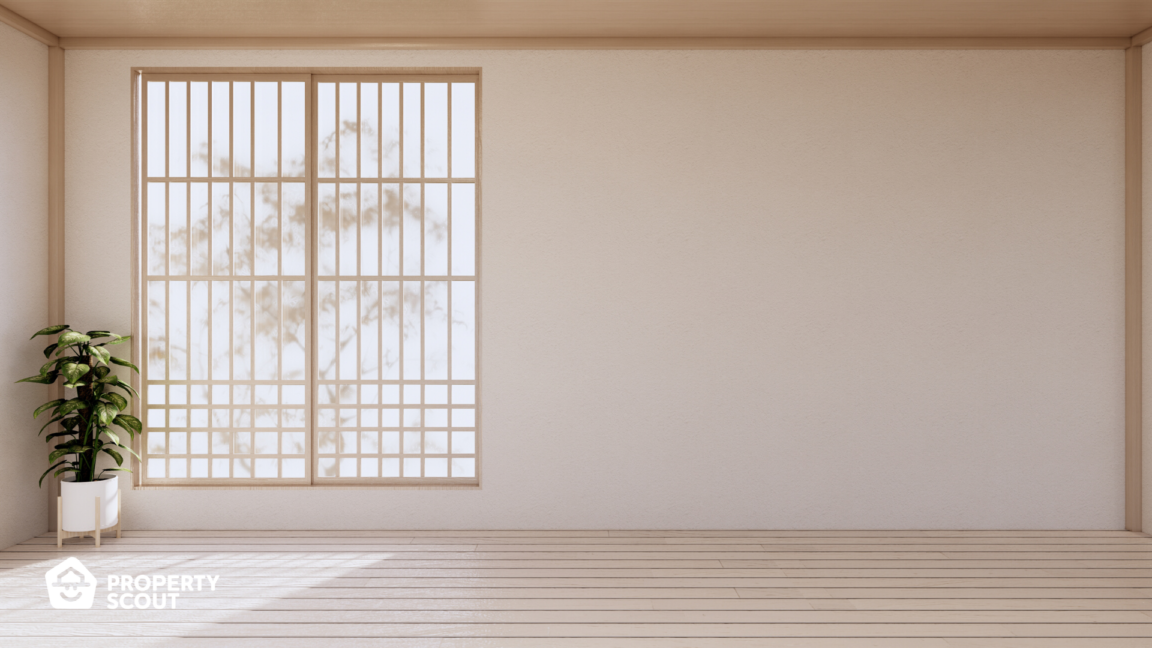
When preparing a room for a baby, it is essential to consider the importance of a tranquil and peaceful environment. Loud sounds and disturbances can be detrimental to a young child's well-being, and what may seem like normal noise to adults can be overwhelming for a baby.
Babies are more sensitive to noise than adults, and excessive exposure to loud sounds can lead to stress and anxiety. This, in turn, can have a negative impact on their physical health and long-term development. As such, it is crucial to create a space that is free from excessive noise and distractions, allowing babies to sleep and rest comfortably.
- Flooring
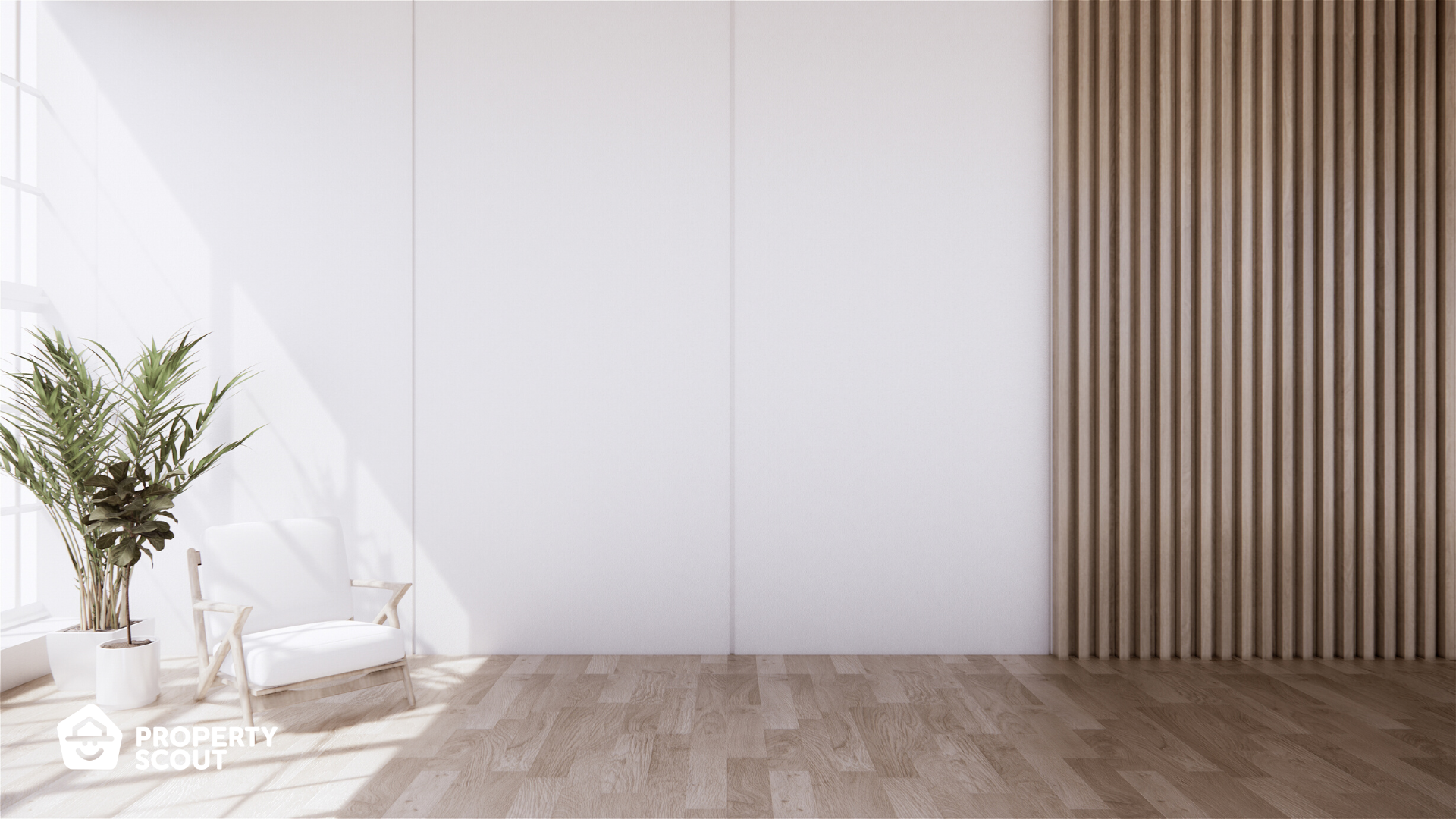
The last aspect to consider is the flooring of the room. The floor should be smooth, clean, safe, and free of sharp edges or corners to prevent tripping hazards and accidents for both babies and parents.
It is important to choose flooring materials that are non-slip, easy to clean, and durable, as they will be subjected to spills, stains, and heavy traffic. Furthermore, any rugs or carpets in the room should be secured to prevent slips and falls.
Furniture matters
During the growing years, children's needs and lifestyle change, to which furniture is another important aspect to consider.
- Bed & Sleeping-related furniture
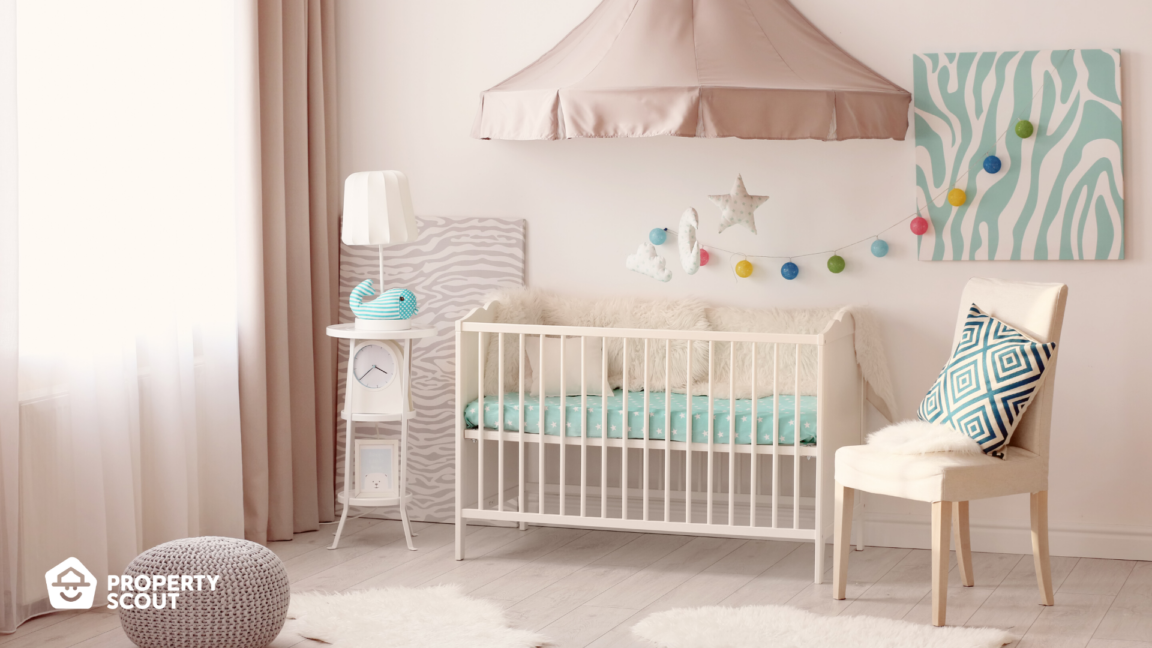
Creating a comfortable sleeping area for infants is crucial, and one of the most important factors is the bed or sleeping space itself. It's essential to ensure that the bed is relatively spacious to accommodate the natural tossing and turning of young children while sleeping. Insufficient space could cause children to roll over and hit the bed's edge, leading to potential injuries. Moreover, it's crucial to have a bed that is sturdy and without any sharp edges to ensure the child's safety and peaceful sleep.
When it comes to choosing a bed for your baby, safety should be your top priority. A crib with slats around it is the best option to prevent overcrowding and ensure the safety of your little one. The slats should be spaced no more than 6 cm apart to avoid any risk of the baby getting stuck or falling out of the crib.
Apart from the crib structure, the mattress and pillow also play a vital role in your baby's safety and comfort. The mattress should not be too soft or too firm, as it may pose a suffocation risk. A supporting pillow that doesn't compress is recommended to prevent the baby from sinking in and having difficulty breathing.
- Playpen
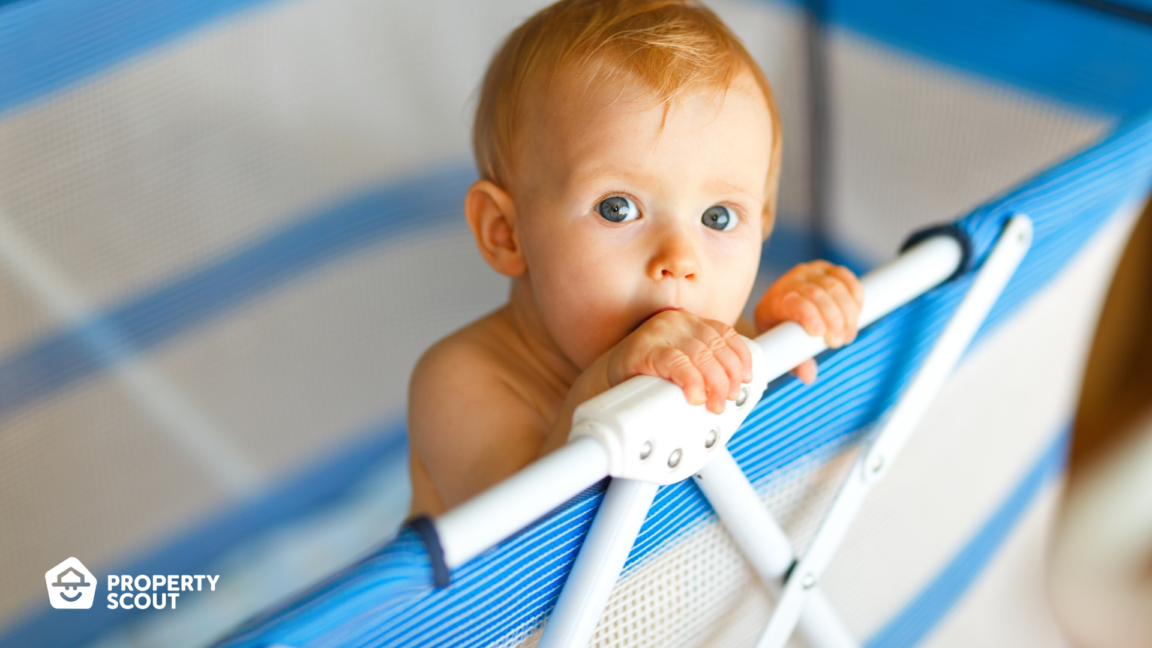
Another essential item for infants is a playpen or play yard as it helps to prevent them from wandering into dangerous areas. The playpen also provides a safe area for the baby to play and crawl without any risk of injury. It is advisable to place a cushion or mat on the floor of the playpen to prevent any injuries from falls.
Moreover, playpens provide a convenient and safe space for parents to leave their babies, without worrying about hazardous objects around them. It ensures that babies are in a secure and supervised environment, and parents can easily remove any dangerous objects from the playpen.
In addition, playpens can also be used as a place for infants to practice standing and walking as they can hold onto the sides for support. This makes it a versatile item that can be used for different stages of a child's development.
- Mat
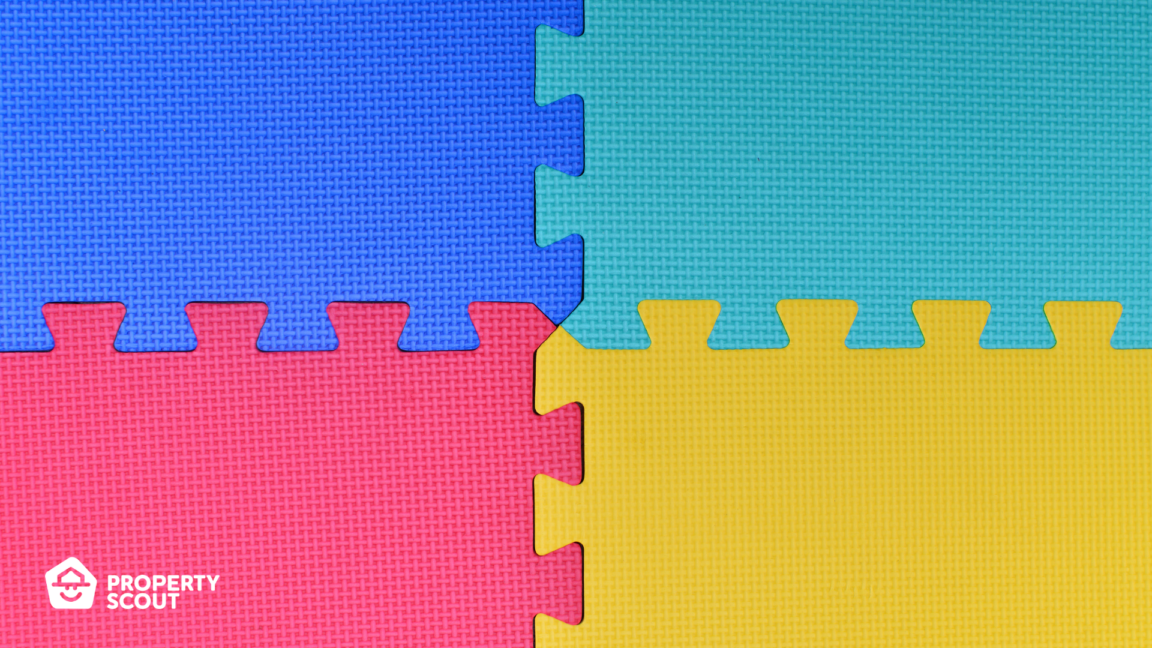
Floor padding is an essential in a room for children, as their skin is particularly delicate. Even a slight impact can cause immediate injury. Therefore, for children of this age, having something soft to cushion them is better.
- Storage
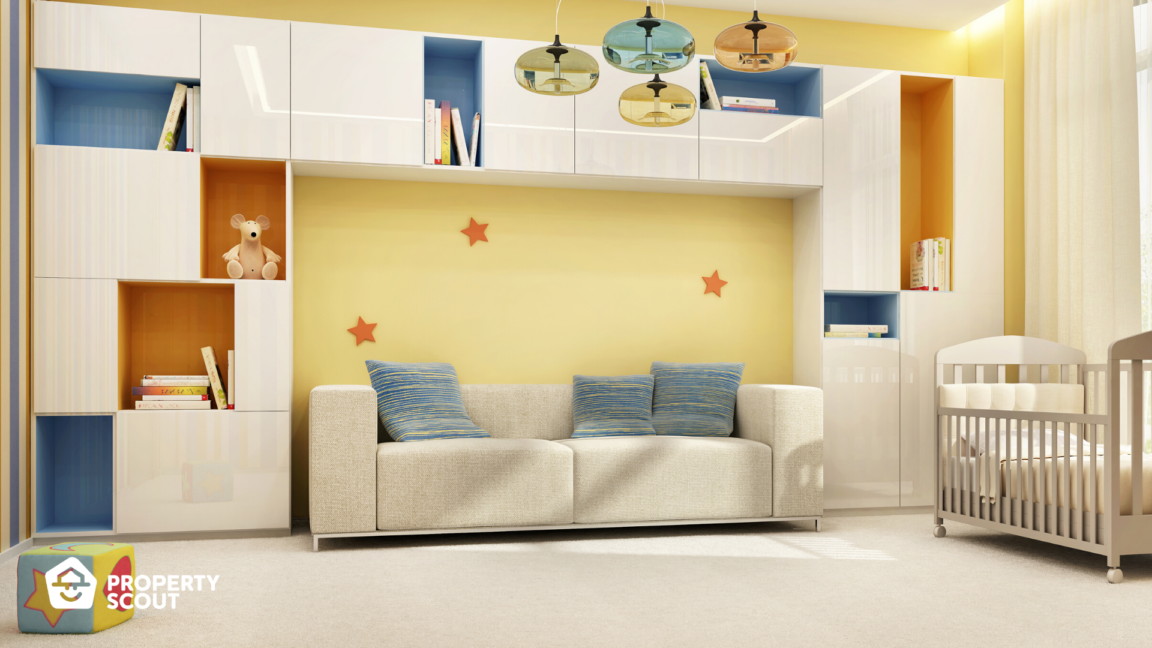
As parents, we all know that children of a certain age are always accompanied by toys. That's why having a proper storage area for toys and personal belongings is essential. For the sake of cleanliness and organization, it's recommended to separate the storage areas.
When it comes to toy storage, options such as a box or cabinet work well. However, personal belongings like diapers, milk bottles, cleaning supplies, and baby powder require a separate space. You might be surprised by how many items you need to store, and they tend to be changed frequently due to your child's rapid growth. Therefore, having plenty of space to prepare in advance is always a good idea.
Room Decoration ideas
Bedroom
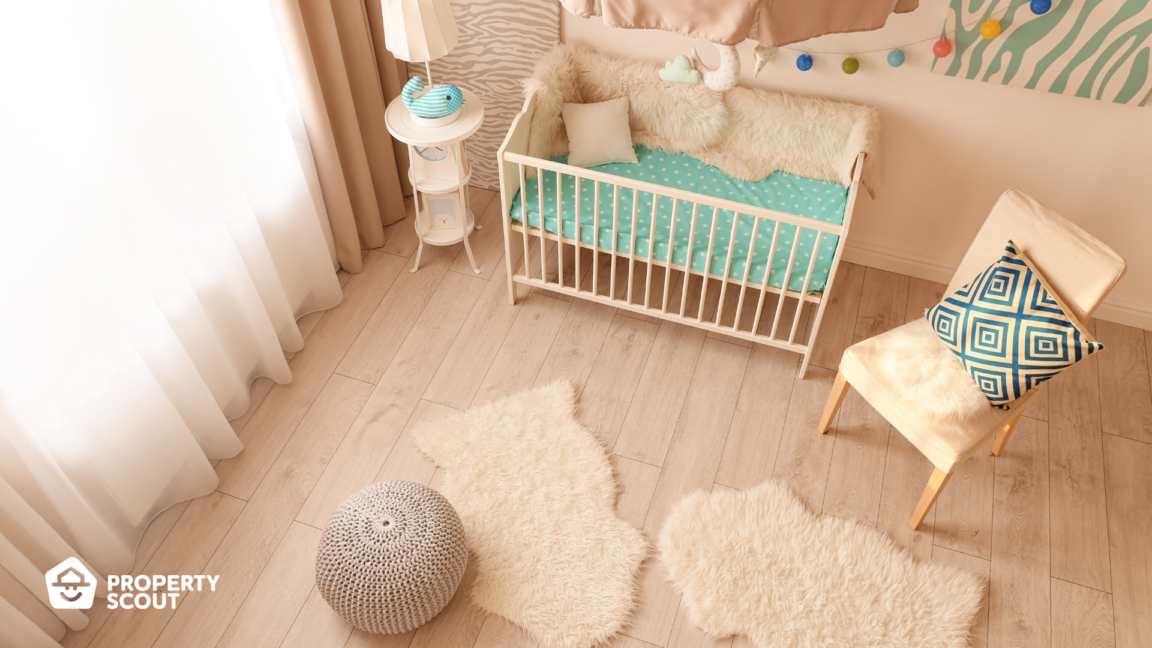
When it comes to creating a space for young children, the bedroom is the most crucial room as it serves multiple functions such as resting, feeding, and changing clothes. As a result, organizing this space is paramount in providing a comfortable and safe environment for the child.
Tips
- Make sure the bedroom is properly ventilated.
- Clean the bedroom regularly.
- Keep the furniture distanced.
- The baby's bed should be separated from their parents' due to spacing reasons.
- Choose the bed wisely.
- The bed must be durable.
- The crib with slats must be tight enough.
- The mattress must be form-fitting with the bed itself.
- There must be no hollow space between the mattress and bed.
- The crib's slats must be rounded.
- Avoid overly thick pillows and blankets.
- Air Conditioner must not be aimed directly onto the bed.
- 25-27 degrees Celcius should be enough.
- Otherwise the baby runs the risk of:
- Bronchitis
- Pneumonia
- Colds
- Runny Nose
- Fevers
Living Room
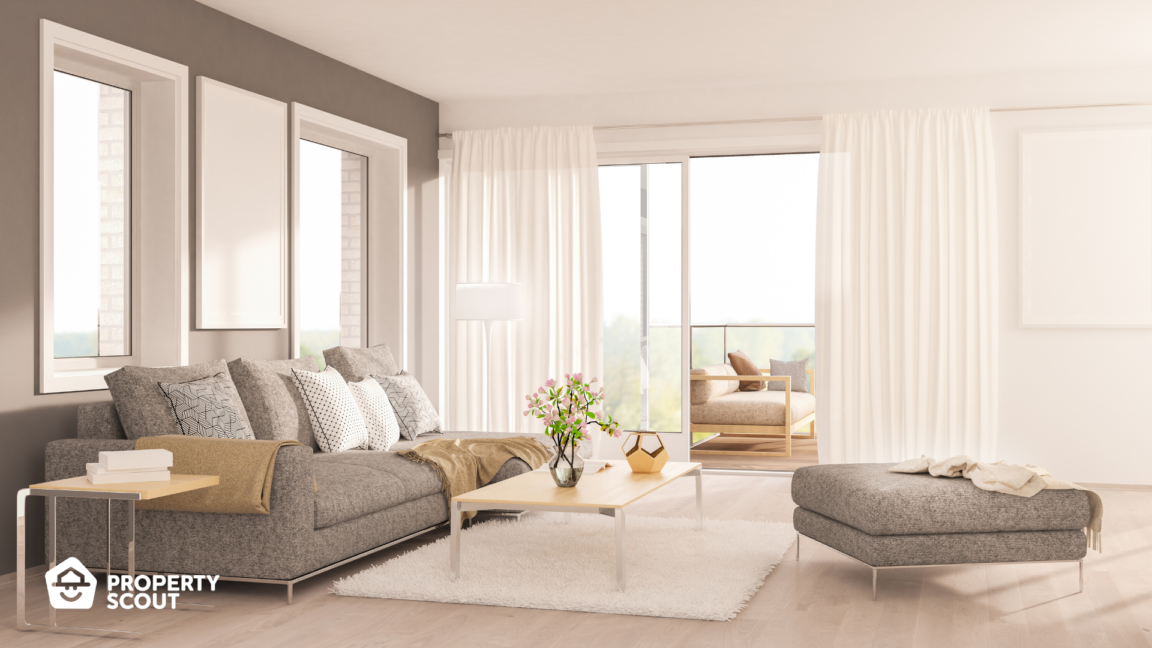
As we move on to the next room, the living room takes center stage. This versatile space serves as another focal point where we spend significant amounts of time, just like the bedroom. Whether it's bonding over shared activities or providing a play area for the kids, the living room plays an integral role in our daily lives. In this blog post, we'll delve into some tips on how to make the most of this space and ensure it's optimized for maximum comfort and enjoyment.
Tips
- Make sure the living room is properly ventilated and spacious.
- Natural lighting is especially beneficial to babies.
- Avoid having the baby near the window.
- Furniture safety is a must.
- No sharp edges.
- Place furniture close to the walls.
- In case the furniture has any sharp edges, add rounded rubber padding for safety.
- Furniture should be fastened to the wall.
- To prevent the furniture from falling onto the baby.
- DO NOT use fans with turbine blade to avoid the risk of babies sticking their fingers in and injuring themselves.
- Avoid leaving the door open.
Bathroom
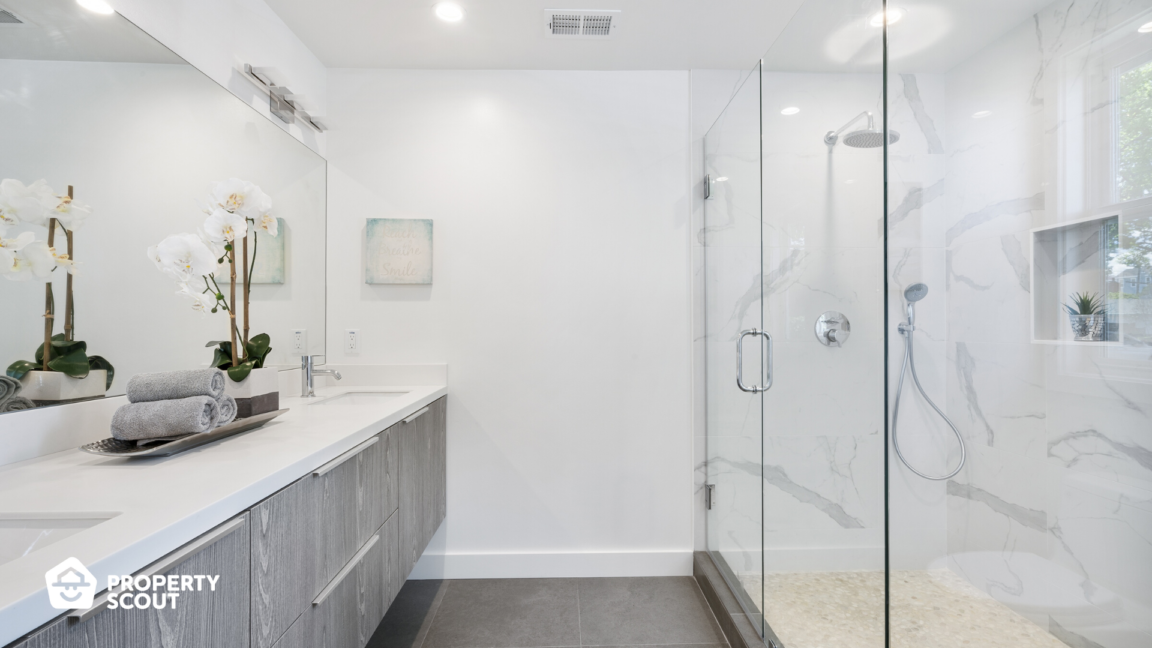
Moving on to the next crucial area, we come to the bathroom. This is a space that demands our full attention as it poses various safety risks for young children. From slippery floors to potential drowning hazards, the bathroom can be a hazardous space if left unsupervised. Moreover, the presence of germs and bacteria makes it all the more important to ensure that proper safety measures are in place to protect our little ones.
Tips
- Divide the bathroom into wet and dry zones.
- Use anti-slip mats.
- Keep cables and cleaning products out of reach of babies.
The Stairs and Balcony

Many homeowners tend to overlook the potential dangers posed by staircases and balconies. However, these areas can be just as hazardous as any other part of the house, particularly for young children. Slippery surfaces and falls from high places can lead to severe accidents at any time. As a result, it's critical for parents to be extra cautious in these areas and take the necessary steps to avoid any accidents.
Tips
- Add a fence on the sides of the stairs to prevent slipping off and falling.
- Keep doors closed at all times.
Conclusion
In conclusion, preparing your home for the arrival of your new baby is an important and exciting step in your parenting journey. By following these essential tips and guidelines, you can create a safe, comfortable, and welcoming environment for your little one. Remember, as your baby grows and develops, your home will need to adapt to their changing needs, so it's important to stay vigilant and keep making necessary adjustments along the way. With a little planning and preparation, you can ensure that your home is ready for the newest addition to your family and enjoy the beautiful moments that come with parenthood. Good luck and congratulations on your new arrival!
Find your ideal property, available for sale or rent in the best prices possible, or list your property for sale or rent here. Alternatively, if you have any further questions, please get in touch with us:



